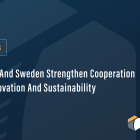The Brazilian Ministry of Agriculture, Livestock and Food Supply is organizing the Workshop on the Recognition of Brazilian Geographical Indications (IG) in the European Union on 24 and 25 June in Brasilia.
The meeting will be attended by consultant Liliana Locatelli, who will address the Geographical Indications system in Brazil, and the Portuguese consultant Ana Soeiro, who will present the procedures for GIs protection of third-country in the European Union.
The program also includes lectures on the structure, control and traceability procedures of GI of the São Matheus (erva mate) and Cerrado Mineiro Region (coffee), as well as a panel where the promotion of Brazilian products abroad will be discussed.
According to the Secretariat of Innovation, Rural Development, and Map Irrigation, it is essential that the Brazilian GIs have a strategy to reach the international market, so the event is aimed at producers and technicians linked to potential and registered Geographical Indications.
The workshop is foreseen in the Map project within the framework of the European Union-Brazil Sectorial Dialogues, with the partnership of the Brazilian Service of Support to Micro and Small Enterprises (Sebrae), the National Institute of Industrial Property (INPI), the Ministry of Economy(ME) and the European Union Delegation in Brazil (Delbra).
Registration is limited and can be made until the 19th (Wednesday).
IG
Geographical Indications (GIs) are important instruments of differentiation and valorization of products and their regions, enabling the aggregation of value and reach to quality markets, in a globalized world characterized by competition in agrifood chains.
The GIs characterize products differentiated by their typicality, quality, tradition, and culture in production. It is an intellectual property asset recognized and valued internationally, mainly in the European Union. Countries like France, Italy, Spain, and Portugal have several products registered as a geographical indication and their consumers recognize and value these products, as well as being their main products exported.
For more informations:
General Coordination of Social Communication
Inez De Podestà
press@agricultura.gov.br
News from: MAPA GOV





